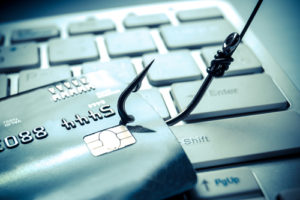Special to the Financial Independence Hub
If you’re like most people, you have a phobia about phishing. In fact, as we found in a recent Interac survey, almost one quarter of Canadians have clicked on a link that resulted in a phishing scam.
It’s no wonder Canadians are more likely to be worried about payment fraud scams such as phishing and skimming than they are about having their homes broken into or their cars stolen. Fortunately, just as you can take steps to protect your home and car, there are things you can do to protect yourself from online scams, too.
Beware Phishing trips
Phishing is a scam where fraudsters try to get your personal or financial information – such as passwords or card numbers – by masquerading as a trusted person or business, usually through email, text or an instant message, but also sometimes by phone. Almost two thirds of the people we surveyed said they’ve been tempted to click on a link they weren’t completely sure was safe. Chances are, you’ve experienced a similar feeling at some point in your online travels.
In recognition of Fraud Prevention Month, here are 7 tips from Interac that will help you avoid a #clicktastrophe and protect against fraud:
1.) Trust your gut. If you receive a deposit or money request notification you weren’t expecting, contact the sender through a different channel to check if it’s real.
2.) Don’t click on any links or open any attachments if you receive them from a sender you don’t recognize.
3.) Look for errors or strange typos in the text of an email notification. A common error in phishing emails is the “$” sign appearing after the amount, instead of before it.
4.) If you think the notification is a scam masquerading as an Interac e-Transfer®, forward the email to phishing@interac.caso our fraud team can further investigate.
5.) If you accidentally fill out personal information in a link from a phishing scam, change your online banking password and contact your bank right away.
6.) When transacting in person, protect your PIN. Keep it to yourself and never share it with anyone, and if you’re making an in-store purchase shield the PIN pad when entering your number and remember to take the card out when the transaction is complete.
7.) If you suspect your Interac debit card or mobile payment device has been compromised, lost or stolen, contact your bank right away.
The bigger lesson to remember is that you can never be complacent when it comes to securing your own personal and financial information. As always, the best offence is a good defence.
 Rob Fodor is Interac Corp.’s Chief Data Scientist and Vice President of Fraud.
Rob Fodor is Interac Corp.’s Chief Data Scientist and Vice President of Fraud.


